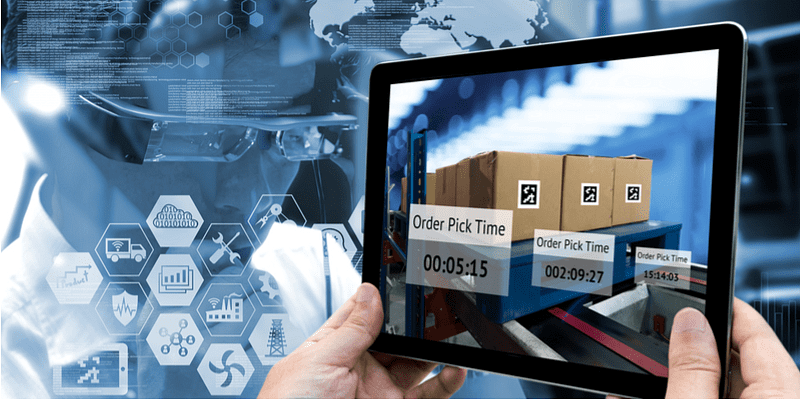Over the last several years, ecommerce has grown at an extremely rapid pace in India. Despite this boom, the majority of transactions still happen offline in brick-and-mortar establishments, and are estimated to continue to do so for the foreseeable future.
As per a report recently released by the India Brand Equity Foundation (IBEF), traditional retail (in the form of neighbourhood kiranas, mom-and-pop stores, and other such family-owned businesses) will control a massive 75 percent of the market by 2021. Tailing at a distant second will be the organised retail market, with 18 percent. And in third place will be ecommerce, with a comparatively tiny seven percent of the retail ecosystem.
It’s clear that offline retail businesses are here to stay. Despite this, these vital cogs of the economy are frequently ignored by the retail logistics and services sector. With most Indians still choosing to do their shopping online, it is imperative that brands take every possible measure to ensure a positive supply chain experience to their retail partners.

To that end, here are the steps essential for a best-in-class shipping experience:
Reliable delivery
Reliability is the bedrock of any successful corporate relationship, and benefits businesses at every phase of their operations – it improves efficiencies, cuts down on expenses, builds trust between parties, and enhances a company’s reputation within an industry.
All these factors are especially critical to the success of a retail business. As such, a reliable delivery partner is worth its weight in gold.
In the past, logistics management operated purely on cost efficiencies. The cheapest available option was regarded as the best, and no further thought was generally given to the matter. Advances in technology and the implementation of a wide array of advanced tools and systems such as Artificial Intelligence (AI) and Machine Learning (ML) have upended the status quo.
Through the algorithmic selection of delivery partners based on factors such as historical delivery speed and SLA adherence, today’s logistics intelligence platforms can help select the ideal option for every shipment.
For example, time-sensitive deliveries can automatically be assigned to a partner with the lowest aggregate delivery time. Similarly, packages that are not time-sensitive can be assigned to a reliable partner that charges a lower fee, leading to significant overall cost savings. The result is a satisfied customer and the strengthening of a mutually beneficial business relationship.
Improved communication
In the past, retailers regarded the time between the dispatch of delivery and its arrival in their stores with a sense of resigned dread. A perfectly understandable sentiment, given the complete lack of any communication on the progress and estimated arrival date of their order. This is no longer viable, given the overabundance of brands and limited selection of retailers in the market.
With every brand keen to associate themselves with the best retailers on the market, it is imperative they take conscious measures to guarantee a smooth and hassle-free supply chain experience.
An integrated logistics intelligence platform provides a solution to these needs. Through the application of analytics and reporting systems, brands can offer detailed visibility of shipment status via SMS and email alerts to retailers. Other key parameters that can be monitored include order to dispatch breach, SLA breach, failed delivery reasons analyses, and delivery attempt percentage counts on the daily, monthly, and quarterly levels. This suite of options provides clients with a unified view of the entire shipment journey from start-to-finish.
Faster dispute resolution
Given the enormous array of components and entities that drive the modern supply chain, disputes are an inevitable facet of the system. Deliveries may be delayed or lost; accidents and breakdowns may cause delays; weather systems may wreak havoc on transport networks, and couriers may fall ill at the last-mile delivery stage.
Any one of these issues can result in severe losses to both retailer and brand. Without an overview of each individual delivery and an efficient network of accountability backing it up, disputes between partners can rapidly escalate and cause irreparable damage to their relationship.
In such a situation, a logistics service offers the capability to rapidly resolve any unanswered issues. Queries or comments on the delivery’s progress can directly be transited to a call-centre team, cutting down on potential delays in the final delivery, while inbound online feedback guards against fake-delivery attempts.
A brand that offers these benefits to its channel partners can be assured of a long and fruitful association across networks while guaranteeing itself an unassailable advantage over its competitors.
(Edited by Megha Reddy)
(Disclaimer: The views and opinions expressed in this article are those of the author and do not necessarily reflect the views of YourStory.)
How has the coronavirus outbreak disrupted your life? And how are you dealing with it? Write to us or send us a video with subject line 'Coronavirus Disruption' to editorial@yourstory.com
YourStory RSS Feed - Link : https://yourstory.com/2020/05/brands-leverage-technology-improve-retailer-experience
Author :- Pranshu Kacholia ( )
May 17, 2020 at 05:19PM

